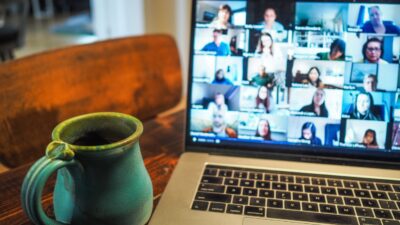
Safeguarding mental health while working from home
Working from home has become so routine during COVID-19 the arrangement even enjoys its own texting friendly abbreviation.
This new way of working is continuing to evolve and it is imperative employee mental health remains at the forefront of the agenda.
Our research – with collaborators from the Black Dog Institute and the Charles Perkins Centre – highlights the how the increased use of technology can both positively and negatively impact employee mental health.
While technology can streamline many aspects of work, its continued use with few breaks can be emotionally and cognitively draining, especially when the boundaries between work and home life are blurred.
Our research highlights that in order to safeguard mental health while working from home, employees need to be very intentional about setting boundaries around where, when and how they work at home. Pre-pandemic, for a lot of us it was easier to leave work behind once we left the office. But when working from home, that clock-off button is a lot harder to push, especially without enforcing clean boundaries. This could include turning off email notifications on your phone at nighttime or agreeing with your team manager to have a ‘smartphone free’ night of the week.
Also apparent from our research is the fact that there are clear directions for educational institutions in preparing workers for the future. Technology will only continue to become an increasingly integral part of work. Equipping current and prospective employees with a future-proof skill set, including how to better collaborate, innovate, self-direct and problem-solve, will provide them with the tools to proactively navigate technology challenges and help prevent poor mental health.
Read the full article in the Australian Journal of Management.
This is part of a series of insights related to Coronavirus (COVID-19) and its impact on business.
Image: Tim Mossholder
Shanta is a Postdoctoral Research Associate at the University of Sydney Business School. Her research looks at how core cognitive processes and workplace factors influence mental health, emotional wellbeing, and both individual and team behaviour.
Share
We believe in open and honest access to knowledge.
We use a Creative Commons Attribution NoDerivatives licence for our articles and podcasts, so you can republish them for free, online or in print.





